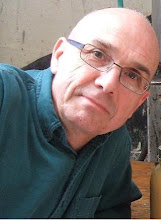Listen to a podcast of this show
Omar Sosa: Iyawo, La Tra, La Llamada, Dos Caminos, and El Consenso from Mulatos (OTA)


Omar Sosa is a Cuban pianist and band leader who has also lived in the U.S., Ecuador, and Spain. This band consists of two North Africans, four Europeans, and two Cubans. They play a mix of Cuban jazz, latin dance grooves, and North African and European folk. This CD is rather chamber-music-like, with a small group and subtle music. The Cuban reed player Paquito d'Rivera makes an appearance on clarinet, and the French musician Renaud Pion plays the astoundingly low-register contra-bass clarinet occasionally to great effect.
The Cave Singers: Summer Light and Leap from Welcome Joy (Matador)


Rich, interesting, dramatic, forlorn, spare folk music from Seattle.
Joni Mitchell: Love Puts on a New Face from Taming the Tiger (Warner)

An exquisite song from a beautiful and perhaps overlooked CD from 1998, by one of my favourite risk-takers.
Handel, Water Music Suite 3: The Hague Philharmonic conducted by Pierre Boulez from Water Music (Philips)
 In 1741, an orchestra played this music on a barge on the Thames, near the King's barge, as a concert for him and his friends. A few years before that, Handel's Music for the Royal Fireworks was also heard by the general public. These may have been the first public performances of classical music . Before that, European music of the great composers was played only for royalty and the upper classes.
In 1741, an orchestra played this music on a barge on the Thames, near the King's barge, as a concert for him and his friends. A few years before that, Handel's Music for the Royal Fireworks was also heard by the general public. These may have been the first public performances of classical music . Before that, European music of the great composers was played only for royalty and the upper classes.
































